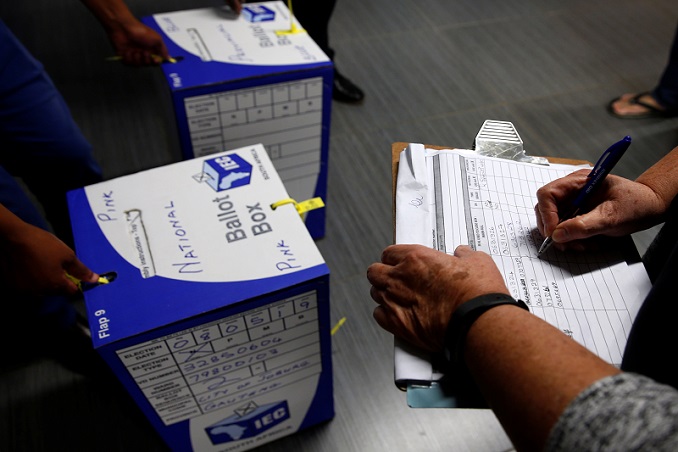![]() South Africa – On Monday, November 1, South Africa is going to hold local elections that will choose council representatives in all nine provinces of the African country. The sixth municipal election since the end of apartheid in 1994, will be a representation of how parties will be contesting at performing at the 2024 scheduled general polls in South Africa.
South Africa – On Monday, November 1, South Africa is going to hold local elections that will choose council representatives in all nine provinces of the African country. The sixth municipal election since the end of apartheid in 1994, will be a representation of how parties will be contesting at performing at the 2024 scheduled general polls in South Africa.
According to South Africa’s Independent Electoral Commission (IEC), a record number of 325 parties have registered to contest the elections for 10,478 seats in the 257 municipalities. The polls will, however, elect only two field candidates in all the areas to be contested.
The Monday elections will be a stiff test for ruling ANC (African National Congress) since the end of apartheid. The party has won all general elections since 1994 but with the old party smeared in corruption and petty infighting, the elections will prove to be a real litmus test as it attempts to renew its image with new offerings. “We know that some of our councilors have grown distant. Others appear arrogant and unconcerned about the challenges our people face. This comes to an end at this election,” South African President and ANC leader Cyril Ramaphosa told party candidates said while signing the party pledge.
Related Posts
The country’s constitutional court had ordered in September the holding of municipal elections, thereby rejecting a request by the Independent Electoral Commission (IEC) that was seeking postponement of elections citing pandemic. “The ballot will go ahead as per the court judgment notwithstanding the challenges we face in delivering this election,” Glen Mashinini, chairperson of the IEC said.
The pushed ahead date of elections has left political parties in South Africa panicking and scrambling due to the extremely shrunk time period for campaigning by eight weeks.
Department of Cooperative Governance and Traditional Affairs (Cogta) showed in its report that many South Africa’s municipalities are facing financial roadblocks and are on the brink of collapse. “You just need to travel to any municipality currently run by the ANC and you’ll see it is a disaster,” said a leader of the official opposition Democratic Alliance (DA) John Steenhuisen. “You’ll see people living in grinding poverty without any services, sewage running down the street and electricity that is irregular at best.”
Campaign tools for the municipal elections have ranged from local issues to xenophobia, Covid-19 pandemic and vaccine hesitancy. Several parties have made promises to prevent COVID-19 vaccine mandates and/or deport undocumented immigrants. “Fake messaging and half-truths is starting to take hold in some corners of the campaign,” Ebrahim Fakir, political analyst at the Auwal Socio-economic Research Institute (ASRI) noted. “Where incorrect information is being used to whip up emotion and get people to vote based on fears involving national issues that can’t be changed in a local election.”
Religion too remains to be a political issue at forefront. “The South African community is actually a deeply religious one. However, we have not seen this religiosity or religious conservatism actually translating in party politicking that we are beginning to see now,” Professor Farid Esack, religious studies expert at the University of Johannesburg said.
The largely peaceful campaigns by parties have remained door-to-door instead of mass gatherings due to Covid-19 restrictions.

